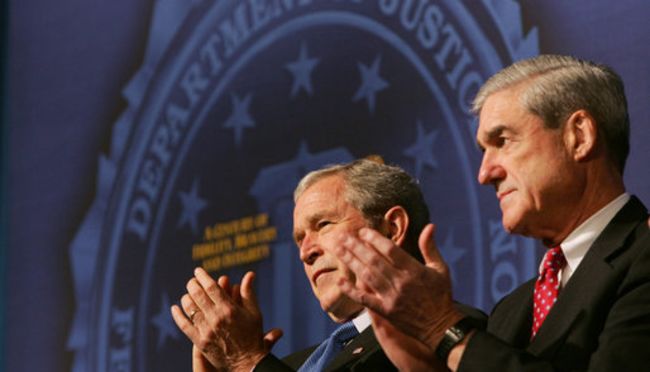
- 23 Feb 2021
- Cold Call Podcast
Examining Race and Mass Incarceration in the United States
The late 20th century saw dramatic growth in incarceration rates in the United States. Of the more than 2.3 million people in US prisons, jails, and detention centers in 2020, 60 percent were Black or Latinx. Harvard Business School assistant professor Reshmaan Hussam probes the assumptions underlying the current prison system, with its huge racial disparities, and considers what could be done to address the crisis of the American criminal justice system in her case, “Race and Mass Incarceration in the United States.” Open for comment; 0 Comments.

- 13 Nov 2020
- Working Paper Summaries
The European Commission’s Sustainable Corporate Governance Report: A Critique
The European Commission commissioned a report on sustainable corporate governance that purports to find serious problems of corporate short-termism. The report is wholly flawed: it conflates time horizon problems with externality problems, mismeasures investment and its financing, and proposes ineffective, possibly harmful reforms.

- 15 Sep 2020
- Working Paper Summaries
State and Local Government Employment in the COVID-19 Crisis
The COVID-19 crisis has had large impacts on local economies and government budgets. Balanced budget requirements, not mis-management, have generated a fiscal crisis and forced state and local governments to reduce service provision precisely when it is in greatest demand.

- 31 Aug 2020
- Research & Ideas
State and Local Governments Peer Into the Pandemic Abyss
State and local governments that rely heavily on sales tax revenue face an increasing financial burden absent federal aid, says Daniel Green. Open for comment; 0 Comments.

- 08 Jul 2020
- Working Paper Summaries
Inventing the Endless Frontier: The Effects of the World War II Research Effort on Post-War Innovation
Investments made in World War II by the United States Office of Scientific Research and Development powered decades of subsequent innovation and the take-off of regional technology hubs around the country.

- 02 Jul 2020
- Working Paper Summaries
Inflation with COVID Consumption Baskets
Examining the impact that changes in expenditure patterns are having on the measurement of consumer price indices (CPI) inflation in 17 countries, this study finds that the cost of living for the average consumer is higher than estimated by the official CPI. This implies that real consumption is falling more quickly over time.

- 22 Apr 2019
- Working Paper Summaries
Government Technology Policy, Social Value, and National Competitiveness
This study examines the impact of a French law requiring government agencies to favor open source software (OSS) over proprietary software in technology procurement processes. Results suggest a cost-effective policy lever that countries can use to both create global social value and increase their own national competitiveness.

- 29 Jan 2019
- Research & Ideas
'Green Bonds' May Be Our Best Bet for Environmental Damage Control
The popularity of green bonds as a way to finance environmentally friendly projects is on the upswing, say Malcolm Baker and George Serafeim. Open for comment; 0 Comments.

- 19 Jul 2017
- Research & Ideas
Why Government 'Nudges' Motivate Good Citizen Behavior
Research by John Beshears and colleagues finds that psychological nudges can be a cost-effective way for governments to get citizens to do the right thing. Open for comment; 0 Comments.

- 26 Apr 2017
- Working Paper Summaries
Assessing the Quality of Quality Assessment: The Role of Scheduling
Accurate inspections enable companies to assess the quality, safety, and environmental practices of their business partners, and enable regulators to protect consumers, workers, and the environment. This study finds that inspectors are less stringent later in their workday and after visiting workplaces with fewer problems. Managers and regulators can improve inspection accuracy by mitigating these biases and their consequences.
- 20 Jan 2017
- Research & Ideas
Here’s How Businessman Trump Is Likely to Approach the Presidency
Harvard Business School professors weigh in on how Donald Trump’s nearly 50 years of experience in building a global corporate empire (and zero years of political experience) might shape his approach to leading a nation. Open for comment; 0 Comments.
- 04 Jan 2017
- What Do You Think?
How Much Bureaucracy is a Good Thing in Government and Business?
SUMMING UP: Bureaucracies aren't by nature bad, but they aren't necessarily built for crisp decision making, either. James Heskett's readers debate the need for bureaucrats. Open for comment; 0 Comments.
- 22 Dec 2016
- Op-Ed
The Small Business Administration is a Model for How to Drive Economic Growth
Responding to a recent editorial in the Washington Post, Karen Mills argues that the Small Business Administration is an effective public-private partnership model that fuels economic growth, access, and opportunity for all Americans. Open for comment; 0 Comments.

- 27 Apr 2016
- Research & Ideas
How the FBI Reinvented Itself After 9/11
In the wake of the 9/11 attacks, the FBI was ordered to reorganize itself from a law enforcement agency to a national security organization. The transformation and the lessons it imparts are documented in a study by Ranjay Gulati, Ryan L. Raffaelli, and Jan W. Rivkin. Open for comment; 0 Comments.
- 29 Feb 2016
- HBS Case
Bigbelly's Big Bet on the Digital Trash Can
Bigbelly wants to transform its solar-powered trash cans into digital hubs offering Wi-Fi access, advertising, and data-collecting sensors. (Oh, and garbage receptacles, too.) A new case study by Mitchell Weiss explores the challenges of a bold strategy pivot. Open for comment; 0 Comments.

Economic Growth Draws Companies to Asia. Can They Handle Its Authoritarian Regimes?
The efficiency of one-party governments might seem appealing, but leaders need a deep understanding of a country's power structure and "moral economy," says Meg Rithmire. Her book Precarious Ties: Business and the State in Authoritarian Asia explores the delicate relationship between capitalists and autocrats in the region.